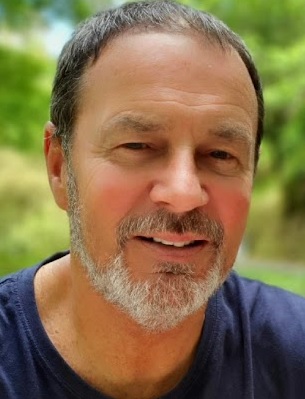
The media are flushed with stories about the arrival of AI (artificial intelligence) into the crevasses of our lives.
Whether we ignore it, or not – and many are doing the former – indifference will be irrelevant to the juggernaut being unleashed before our eyes.
Make no mistake, this is likely to be humanity’s biggest game-changer since we hominoids learned to walk and talk.
The opportunities to speed up progress on any issues we’re confronted with, from decarbonising the atmosphere to creating an easier life for citizens, is already here. But so too are the inescapable dangers of a technology that puts unbridled power in the hands of anyone, whether it’s Vladimir Putin or the nutter next door with a 3D gun printer and a P lab.
Of course, it’ll take a bit of time to grasp the benefits and any downsides of AI, but time is already running out to properly reflect and respond – as communities – to what’s happening.
Like most successful technical innovations, the inventor just gets on and does it, while the rest of us, including the politicians, try to catch up a bit later. Think of the invention of the steam engine where huge snorting trains could suddenly plough through our landscapes with not too much mind for the safety of children, stray animals or the environment.
But AI’s impact, roll-out speed and significance pales against everything else, whether it’s a steam train, the invention of the internet or the automobile.
That’s because AI is already beginning to harness massive and high-speed computing power that’s freely available globally, which will affect all aspects of our lives – our jobs, education, health, entertainment, well-being and all future technologies.
It has no precedence, but I do think back to experience from my own past. It was 1980 when the unthinkable happened. I remember the year because the first Sweetwaters Music Festival was held near Ngāruawāhia and Jon Stevens was singing Montego Bay over and over on the radio.
The unthinkable was the arrival, in that year, of new technology at the Avalon TV studios where I worked on programme production.
The Grass Valley Mixer was a new video control panel that made it possible to create digital graphics animations instantly and with little more than a flick of a couple of switches.
Up to that time, I’d been involved in developing animations for television that required laborious manual effort, often hand drawing images that required 25 frames a second. To create a 30-second programme sequence could take months.
I recall being appalled by the ease with which anyone, without design skills, could create staggered title graphics and whizzing wave spirals in seconds.
Needless to say, it became all the rage and programmes of the time uniformly looked like hallucinating Duran Duran pop videos.
Of course, this was just the beginning of an electronic revolution that transformed not just video graphics but all creative processes that used computers and digital technology to make sounds, pictures and movement. With that progression, so too did the quality of the end results.
Steadily the true creative professionals took back control, mainly because, as they mastered the new technologies, it became apparent that the human inputs were still the difference between good quality work and shabby work.
In most senses AI is merely an extension of this. But I can’t help feeling, this time, we are letting a Frankenstein monster out of a cage.
What happens to people when large irresponsible corporations and other actors decide to use AI to subjugate people and send them to living purgatory. If you think this is far-fetched, consider the recent comments of an award-winning computer scientist known as the “godfather of artificial intelligence”, Geoffrey Hinton. He recently resigned from a high-profile job at Google and is having some serious second thoughts about the fruits of his labours. He highlights a couple of key issues:
AI might already be smarter than humans. Not only can AI systems learn things faster, he notes, but they can also share copies of their knowledge with each other almost instantly.
Malicious individuals, groups or nation-states might simply co-opt AI to further their own ends.
Hinton advocates a global agreement similar to the 1997 Chemical Weapons Convention as a first step toward establishing international rules against weaponised AI.
Whatever happens and how humanity responds, all of our lives are changing rapidly and permanently. We can embrace it and retain responsible human control, or we can meekly allow it to wash over our lives.
 You can contact Fraser here.
You can contact Fraser here.
Fraser Carson is the founding partner of Wellington-based Flightdec.com. Flightdec’s kaupapa is to challenge the status quo of the internet to give access to more reliable and valuable citizen generated content, and to improve connectivity and collaboration.
Flightdec websites include: KnowThis.nz, Issues.co.nz and Inhub.org.nz.
OTHER POSTS
LATEST POSTS
- Who was our first knight?
- Carl Lutz – farmer who loved the land, and Fordsons
- Money for the expressway – for whom does the bell toll?
- Arthur saw nature ‘with eyes of admiration’
- Ōtaki-Māori Racing Club ‘focused on mana and mauri’
- If you’re not there you won’t know what’s going on
- Ōtaki abuzz with film festival - Ōtaki Today
- Hall helps to connect and build community
- Fear breeding fear, fear and more fear
- Plenty of help organisations in times of need
- Poor official communications fuel misinformation
- Cultural infrastructure could be our saviour
- Four-storey blocks coming as developments fast-tracked
- The world’s therapist offers little hope for global ills
- Modern conservatism the quiet killer
- Di’s QSM for services to community and environment
- However bad it might get, keep smiling
- AI is coming, ready or not
- Rewi’s story one of adversity in old Ōtaki
- Arise King Brown of the Kingdom of Auckland
